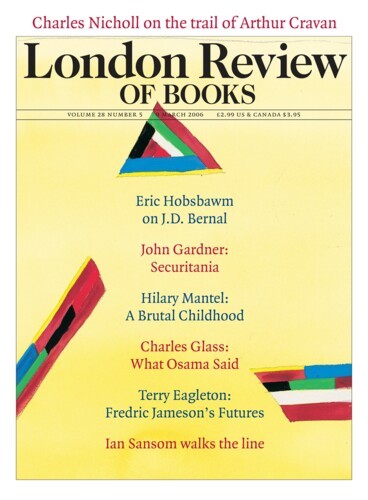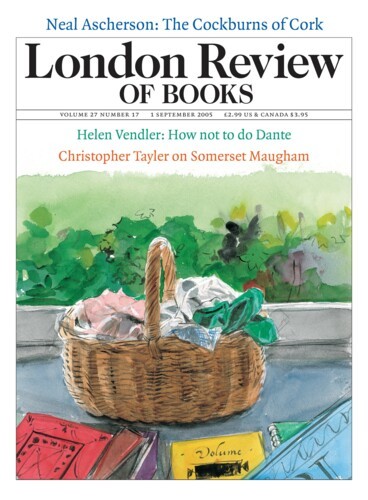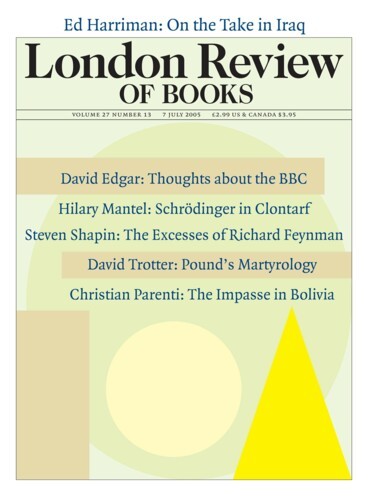A Pair of Lobsters in a Murky Tank: James Lasdun
Theo Tait, 9 March 2006
‘A woman threw her glass of wine at me,’ James Lasdun’s second novel begins. At a party held by a wealthy philanthropist in New York, a woman walks up to the narrator and asks: ‘Excuse me, are you Stefan Vogel?’ He says yes; she flings her wine in his face. In keeping with the novel’s mood of dreamlike self-absorption, the event is replayed many times....





